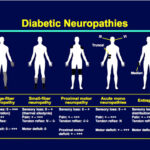Generally women remain subdued as far as society is concerned and they are not even allowed out in public in some of the parts of the world. They are thus forced to swallow their own problems and if there are any, they are not helped out by their male counterparts. There are many symptoms which are attributed to the monthly cycles and some even to the stoppage of the cycles. This newsletter will help address some of the major issues that concern women and also the implications of having diabetes among women. Some of the women do not even speak to the health care providers or even their husbands, about their problems.
Poor diabetic control can impair normal reproductive function. Thus the women with diabetes may have problems conceiving.
Glucose levels may increase in the weeks preceding menstruation
Polycystic ovary: (PCOS)
PCOS is a condition characterized by reduced periods, obesity, acne, increased hair on face, chin. Values of testosterone and another hormone called DHEA will be raised. The condition is called a form of insulin resistance ( a major cause of type 2 diabetes) PCOS can thus be associated with development of type 2 diabetes in the long term. It is usually treated by the obstetrician and gynecologist who may run some tests including an ultrasonogram of the abdomen to look for the ovaries which may be riddled with small fluid containing cysts. This is treated with either metformin or pioglitazone ( both are medicines used in management of diabetes, but can cure the insulin resistance , which in turn will regularize the periods and correct the menstrual irregularities). Usually seen among the adolescent or young women and they would not get pregnant due to the irregularity of periods. In some societies, women after marriage are viewed with suspicion if they do not carry within a year or two.
Fractures among women
Hip fractures are common among those with type 2 diabetes ( almost 2 fold increase than when compared with those without diabetes). Generally fractures are more common among the elderly.
Fractures can be affected by the number and type of falls, the padding of the bony prominences, the strength of the bones and the geometry of the bone. Remember that falls may be due to retinopathy ( when poor eye sight is the cause), poor balance or fall in blood pressure with change in posture, in co-ordination, hypoglycemia(low blood sugar) and muscle weakness.
How to prevent bone loss?
- Regular exercise and a healthy diet.
- Good glycemic control
- Maintaining an adequate intake of vitamin D and calcium
- By avoiding smoking and alcohol.
If above the age of 45 years, have the following done:
Blood tests such as 25( OH) vitamin D3, calcium, blood tests for thyroid and parathyroid and a bone mineral densitometry. This is besides the usual check for eye, heart, blood for lipids, sugar, kidney, hemoglobin, and liver. One must also have a routine mammogram, blood cancer markers, a pap smear of the cervix and a regular check by the gynecologist.
If the bone mineral densitometry( BMD) for short, shows a value of 1.0 – 2.5 SD below normal you will be called osteopenic and if the value is >2.5 SD below normal, you will be labeled as osteoporotic. BMD is a type of scan for the bones where the bone densities are measured at the hip or upper part of thigh bones or the wrist.
How to prevent falls?
- Use of walkers
- Night lamps
- Muscle strengthening exercises.
You can make exercising a joy by doing something out of the way, say for example, you may dance to music within the confines of one`s own room, or use the Hula Loop, climb stairs or walk to the grocery store for a change. Generally women after menopause have chances of developing a heart attack unlike when they had their regular cycles.
Who are prone for fractures?
Those with low BMD( bone mineral density), old age, females, those having light body weight, those with previous fractures or those who smoke cigarette.
Sexual dysfunction
Men and women respond differently to sexual dysfunction. Men focus on physiologic function and women on the psychological factors including the quality of relationship. Vaginal dryness and impaired arousal are common among women after menopause. There is little evidence to show benefits of using medicines such as sildenafil ( popularly called as viagra) and tadalafil ( called cialis or snafi)
Pregnancy and diabetes
Most of the patients have a condition called gestational diabetes ( which is diabetes occuring during diabetes and disappear after delivery, but can again come for the next delivery) or people who are already type 1 or type 2 diabetics who become pregnant.
Who is at risk?
• If the BMI >30
• Previous big babies at delivery
• Previous GDM ( Gestational Diabetes Mellitus)
• Family history of DM ( Diabetes Mellitus)
• If belonging to Asian, African or Middle east population
Why important?
• Diabetes in pregnancy is associated with risks to the baby and mother
• Miscarriages
• Pre term delivery ( delivery before the expected date)
• Big babies cause problems at delivery
• Associated congenital malformations
• Associated raise in blood pressure in the mother
• Chances of low sugar in the baby after delivery, chances of developing respiratory problems and jaundice ( yellow color)
Before planning pregnancy:
• Reduce weight so that BMI is close to 25
• Maintain good glycemic control.
• Avoid pregnancy if the HbA1c is > 10%
• Avoid unplanned pregnancy
• Assess eye for retinopathy and kidney for nephropathy
Remember that good control only reduces the risk for problems for the baby and the mother, it does not eliminate the risks.
Remember that the sugar levels normalize after delivery, but the risks for developing diabetes type 2 are there if not controlling lifestyle, after delivery.
Also remember that the baby delivered is at risk for developing obesity and type 2 diabetes later on .
Fetal malformation may occur with diabetes, some may have large for age babies, some may have larger tummies either due to more than one baby or large babies or extra water.
Control sugar before planning pregnancy.
Oral contraceptive pills taken for regularizing periods may be associated with poor glycemic control. If on these pills, monitor the sugar and blood pressure from time to time.
Once you become pregnant:
• Make timely appointments with your obstetrician
• Maintain sugar levels at 3.9-5.5mmol/L in fasting and <7.8 mmol/L after meals.
• HbA1c, the 3 month average of sugar, is recommended to be between 6-7%
• Have an eye check if not done in the last 6 months preceding pregnancy
• Diet should be having 30% less calories than before pregnancy
• Diet should contain 50% carbohydrates, 15% protein ( fish, white meat, dairy products, beans, egg) and 35% fat ( polyunsaturated fat)
• Avoid low sugars
• You can exercise- walking is still the best form of exercise. But, consult with your healthcare provider.
• Hydrate yourself well
• REMEMBER that you are caring for another life as well. Hence no rigorous diet.
• It is normal to gain weight during pregnancy.
• The Obstetrician will be checking your weight, blood pressure, feet for swelling and do periodic tests for the growing baby to make sure the baby is growing well and has no problems. Some centers even have facilities for correcting some problems while the baby is still in the uterus without compromising the life of baby and course of pregnancy. ( however it does carry a risk, though).
• Normally a test called GTT ( glucose tolerance test) will be done at 24 weeks You will be given 75 g of glucose to drink and a 2 hours sugar reading will be done. Depending on the levels, diagnosis of diabetes will be made.
• Urine sugar levels are not reliable during pregnancy as there will be sugar in urine even if not pregnant as the glucose spills in urine even at low blood levels.
• Oral medicines for control of diabetes will be stopped once you become pregnant
( however, metformin is safe and so also is glibenclamide during pregnancy and breast feeding).
• However, it is safe to use rapid insulin in suitable doses to prevent sugar fluctuations.
• Periodic sugar measurement and liaise with the Health care providers to correct the dose
• Check sugar before bedtime. If below 7 mmol/L, do have some carbohydrates before bed to avoid low sugars in the early hours of the morning
• Most medicines for blood pressure and for control of cholesterol will be stopped. However there are medicines for control of blood pressure which can be safely used.
• It is safe to continue the thyroid medicine given for low thyroid function.
• Please consult the Health care providers for advice on your regular medications.
• During delivery you will be given a drip which will contain glucose to keep the sugars at level.
• The delivery will be either a normal or cesarean section
• Early breast feeding to prevent low sugars in the baby. This also helps in early bonding between mother and the new baby and also helps the uterus to contract.
• Some women are even started on an insulin pump which will deliver insulin at regular intervals.
Menopause
Menopause is the phase of life after your periods have stopped. Diabetes and menopause may team up for varied effects on your body, including:
• Changes in blood sugar level. The hormones estrogen and progesterone affect how the cells respond to insulin. After menopause, changes in the hormone levels can trigger fluctuations in the blood sugar level. One may notice that the blood sugar level is more variable or less predictable than before. If the blood sugar gets out of control, one might have a higher risk of diabetes complications.
• Weight gain. Some women gain weight during the menopausal transition and after menopause. This can increase the need for insulin or oral diabetes medication.
• Infections. Even before menopause, high blood sugar levels can contribute to recurrent urinary and vaginal infections. After menopause — when a drop in estrogen makes it easier for bacteria and yeast to thrive in the urinary tract and vagina — the risk is even higher.
• Sleep problems. After menopause, hot flashes and night sweats may keep one up at night. In turn, the sleep deprivation can make it tougher to manage the blood sugar level.
• Sexual problems. Diabetes can damage the nerves of the cells that line the vagina. This can interfere with arousal and orgasm. Vaginal dryness, a common symptom of menopause, may compound the issue by causing pain during sex.
Menopause can wreak havoc on the diabetes control. But there’s plenty one can do to better manage diabetes and menopause.
How to overcome Diabetes during menopause
• Make healthy lifestyle choices. Healthy lifestyle choices — such as eating healthy foods and exercising regularly — are the cornerstone of your diabetes treatment plan.
• Measure your blood sugar frequently. You may need to check your blood sugar level more often than usual during the day, and occasionally during the night. Keep a log of the blood sugar readings and symptoms. Your doctor may use the details to adjust the diabetes treatment plan as needed. Your doctor may also recommend regular hemoglobin A1C testing to reflect your average blood sugar level for the two- to three- month period .
• Ask your doctor about adjusting your diabetes medications. If the average blood sugar level increases, one may either need to increase the dosage of the diabetes medications or begin taking a new medication — especially if one gains weight. Likewise, if the average blood sugar level decreases, one may need to reduce the dosage of your diabetes medications.
• Ask your doctor about cholesterol-lowering medication. If you have diabetes, you’re at increased risk of cardiovascular disease. The risk increases even more when you reach menopause. To reduce the risk, eat healthy foods and exercise regularly. Your doctor may recommend cholesterol-lowering medication as well.
• Seek help for menopausal symptoms. If one is struggling with hot flashes, vaginal dryness, decreased sexual response or other menopausal symptoms, remember that treatment is available. For example, your doctor may recommend a vaginal lubricant to restore vaginal moisture or vaginal estrogen therapy to correct thinning and inflammation of the vaginal walls (vaginal atrophy). If weight gain is a problem, a registered dietitian can help you revise your meal plans. For some women, hormone therapy is an option.
Diabetes and menopause is a twin challenge. Work closely with your doctor to ease the transition.















